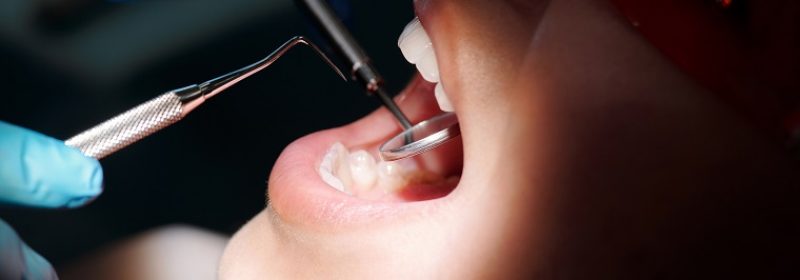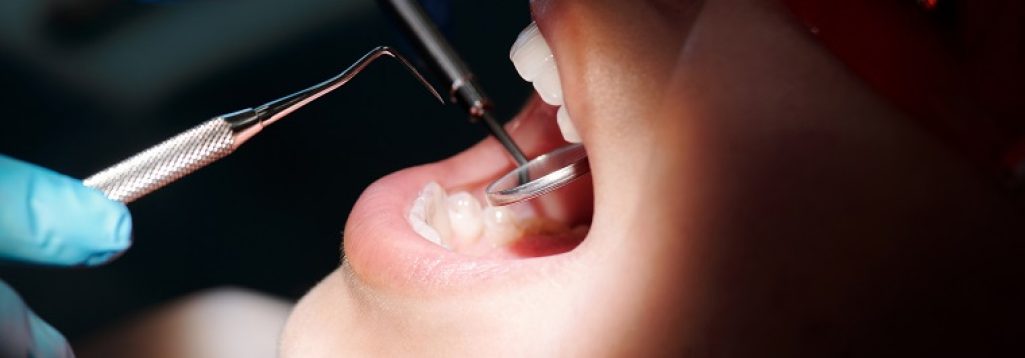
|

|

|

|

How gum diseases occur and what you can do to prevent them
Gum disease is a common problem that afflicts millions of people around the world. Also known as periodontitis, this is a disease in which the gums become red, swollen and sometimes become prone to bleeding as well. Periodontitis eventually leads to loss of teeth if left untreated because it affects the jaw bone which holds the teeth in place.
How it occurs
Periodontitis occurs due to bacterial build-up. All mouths have bacteria that help in maintaining the PH as well as help in maintaining oral hygiene. But when this bacteria mixes up with mucus it forms a coating over the teeth. This coating is known as plaque. This plaque is very hard to remove and hardens over time. It doesn’t get removed by simple brushing. It eventually hardens up and forms tartar. Periodontitis eventually evolves into gingivitis in most cases.
Symptoms
Periodontitis shows various symptoms before turning into gingivitis, a much severe condition. These symptoms are:
- Tender gums
- Receding in gums
- Bleeding
- Loose and moving teeth
- Sensitivity
- Pain while chewing
Causes
Periodontitis is usually caused by poor oral hygiene and a few other factors like age group. People above 30 years of age show more symptoms of periodontitis than younger people. People who don’t brush their teeth regularly are more likely to develop periodontitis as poor oral hygiene is a good breeding ground for bacterial growth.
Stats show that men are also more prone to periodontitis than women. Smoking and tobacco chewing also affect dental health and are a major contributor to orthodontic diseases. Smoking decreases the body’s ability to fight off bacterial growth and also impacts immunity. Diseases like diabetes also improve the patient’s risk of periodontitis and other dental diseases. Genetics also play a role in vital role in periodontitis development. Some medications also contribute to periodontitis. Particularly the one that reduce saliva production.
Treatment
Periodontitis treatments include cleaning and sometimes surgery. Deep cleaning is usually recommended for excessive plaque build-up. Deep cleaning involves scaling and root planing. Scaling is used for removal of tartar from above and below the gum line. Root planing is recommended for spot removal and bacterial elimination. Antimicrobial mouth washes and antibacterial gels are also recommended.
If the gum disease has already propelled and has become severe, surgery is recommended. In flap surgery, the gums are lifted back and the dentist removes tartar. The gums are then stitched back together close to the teeth. Then bone grafting is performed. The dentist studies pieces of jaw bone taken from an area with adequate jaw bone to the area with less jaw bone. The dentist also stitches the bones together in a way that can cause regrowth of bone over new areas.
Prevention
Prevention is always better than cure, so it is best to take care if the teeth properly to avoid periodontitis and any other periodontal diseases. Here are some ways to prevent developing the disease:
Brushing teeth regularly
Individuals who brush teeth twice are less likely to develop periodontal diseases than t individuals who don’t. It also contributes to poor oral health. Replacing the toothbrush after it has exceeded its expiry date is also recommended for better oral health. A softer tooth rush is used to look after sensitive teeth. Electric toothbrushes also serve as great convenience since they can help in plaque removal.
Flossing daily
Flossing is very essential to remove plaque and tartar. Floss can reach the places where a toothbrush cannot. It reaches in between teeth and clears away plaque build-up. A toothbrush cannot reach in between teeth and clear debris. Flossing twice a day is recommended to fight off bacterial build-up.
Antibacterial mouthwashes
An antibacterial mouthwash is recommended to prevent bacterial growth. It can reach places where the toothbrushes and floss cannot reach. The liquid can easily swirl through the mouth and ensure deep cleaning.
Regular check-ups
Getting regularly checked by the dentist helps in detection of any plaque build-up and helps in the prevention periodontal and a majority of other periodontal diseases. Annual check-ups are sufficient for patients who do not have any additional risks for periodontitis. However, the patients who do have a higher risk of periodontitis are advised to visit the dentist much more frequently. Also, patients who have braces, implants or bridges are also advised to visit the dentist twice a year for maintainers of these orthodontic treatments. Such teeth are also vulnerable to periodontitis as the metal appliances can make it difficult to clean teeth thoroughly.
Quitting harmful foods
Foods which are known to damage the teeth should be consumed less frequently. Beverages that affect oral health should also be avoided as much as possible. Tobacco chewing should also be lessened and if possible, the patient should quit it completely. Tobacco cheers and smokers have






